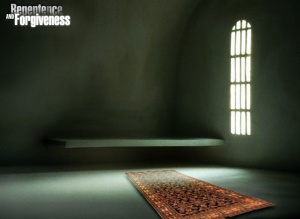Al-indhibat means discipline. Discipline is not entirely restricting, in turn; ironically, it releases and enhances our ability to be creative and at the same time being efficient. It helps us to finish our task in time and that allow us more time to do more things that we can ever think of. Be disciplined and definitely we'll find that we're having more time to do things than before.

Some would say that "Discipline is doing what you don't want to do when you don't want to do it!" - this is so true in my case now, where I should have started my revision long before I could realise that I've been fooling around and burnt the whole week for nothing. oh my, where's my senses gone ouchh. The exams are getting closer than ever and the time passes so swiftly that you can't really tell and it's Friday again. Ok have to do my work now! Buckle up the shoes and buck up!

Before I end, it is important that we're not only be discipline in our academic work, but to include together our spiritual life in the picture as well. There are ways in which a Muslim can discipline himself as follows:
1- Worshipping Allaah, keeping in contact with Him and submitting to Him.
That is done by paying attention to doing obligatory acts of worship well, and cleansing your heart of any attachment to anything other than Allaah.
2- Reading Qur’aan a great deal, pondering its meanings and seeking to understand it. Remember that the Qur'an is a great healing tool!
3- Reading useful religious books that describe the ways of treating and cleansing the heart, reading the biographies of the salaf and learning about their attitude and behaviour.
4- Attending educational programs such as classes and lectures.
5- Making good use of your time and using it to do things that will be of benefit in both worldly and spiritual terms.
6- Not indulging too much in permissible things and not paying too much attention to them.
7- Keeping company with righteous people and looking for righteous companions, who can help you to do good. Those who live alone will miss out on a lot of the characteristics of a good brother such as preferring others to oneself and being patient.
8- Trying to act on what you learn and put it into practice.
9- Checking closely on yourself. Muhasabah! Always spare time to reflect ourselves.
10-Having confidence in yourself – whilst relying on Allaah – because the one who has no confidence cannot act.
11-Despising yourself for not doing enough for the sake of Allaah.
2- Reading Qur’aan a great deal, pondering its meanings and seeking to understand it. Remember that the Qur'an is a great healing tool!
3- Reading useful religious books that describe the ways of treating and cleansing the heart, reading the biographies of the salaf and learning about their attitude and behaviour.
4- Attending educational programs such as classes and lectures.
5- Making good use of your time and using it to do things that will be of benefit in both worldly and spiritual terms.
6- Not indulging too much in permissible things and not paying too much attention to them.
7- Keeping company with righteous people and looking for righteous companions, who can help you to do good. Those who live alone will miss out on a lot of the characteristics of a good brother such as preferring others to oneself and being patient.
8- Trying to act on what you learn and put it into practice.
9- Checking closely on yourself. Muhasabah! Always spare time to reflect ourselves.
10-Having confidence in yourself – whilst relying on Allaah – because the one who has no confidence cannot act.
11-Despising yourself for not doing enough for the sake of Allaah.
This does not contradict the things mentioned above. Man has to strive hard whilst still thinking that his efforts are not enough.
12-Practising withdrawal or isolation as prescribed in sharee’ah.
12-Practising withdrawal or isolation as prescribed in sharee’ah.
You should not mix with people all the time, rather you must have some time which you spend alone, in worship as prescribed in Islam.
We ask Allaah to help us and you to discipline ourselves and submit to that which Allaah loves and is pleased with. May Allaah send blessings and peace upon our Prophet Muhammad and upon his family and companions.
and upon his family and companions.
We ask Allaah to help us and you to discipline ourselves and submit to that which Allaah loves and is pleased with. May Allaah send blessings and peace upon our Prophet Muhammad
 and upon his family and companions.
and upon his family and companions.
Self-discipline is the key to success! ^_^








